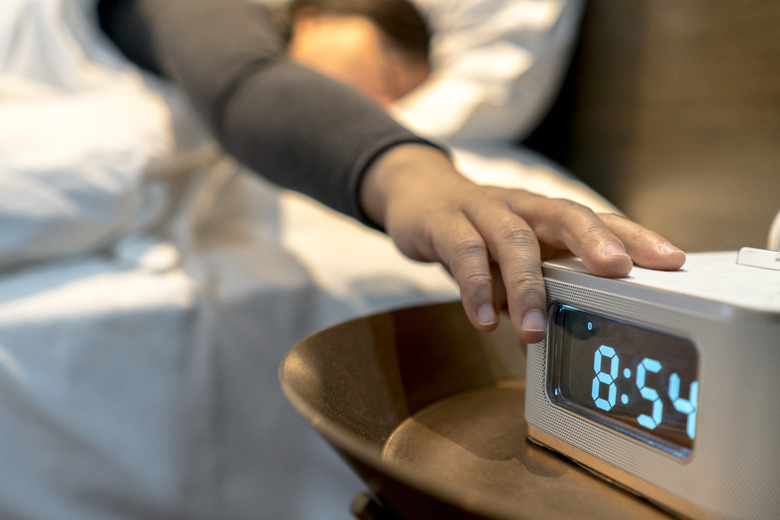Here's How The End Of Daylight Saving Time Might Affect You
November 3 marks the end of daylight saving time for 2019. And I don't know about you, but I'm happy for the extra hour of sleep and the not quite so early mornings.
The end of daylight saving time does have some downsides, though, aside from the fact that it'll get dark earlier. The time change can temporarily confuse your internal clock (also called a circadian rhythm) in a way that can disrupt your awareness until you adjust.
Here's what's going on with your internal clock – and some unpleasant effects you might experience in the day or two after the time change.
The External Clock Resets – But Your Internal Clock Doesn't
The External Clock Resets – But Your Internal Clock Doesn't
While your real life schedule is dictated by the clock, your body has its own way of telling time. Specifically, your body responds to cues from the light to help to get (and stay) alert during the day and prepare to catch some ZZZs at night.
Some of it works because of hormones you've probably already heard of, like melatonin. Exposure to light (especially sunlight or artificial light that mimics sunlight) keeps your melatonin levels low, helping keep you feeling awake during the day. Once the sun sets and your light exposure goes down, melatonin levels rise, triggering sleepiness.
When daylight saving time ends and the day/night cycle are now one hour out of sync with what your brain considered "normal," you might experience some drowsiness earlier in the day.
So, How Does it Affect Your Health?
So, How Does it Affect Your Health?
While an hour difference shouldn't throw your whole day out of wack any more than an hour of jet lag would, you might notice some differences.
Traffic accident rates tend to go up around the time change – especially on Sunday, the first day of the change. So if you're driving home from work, be cautious on the road.
You might also feel tired earlier in the evening, which means your planned nightly study might feel like more of a grind than usual. If you find yourself feeling sluggish, try upping the light levels – turning on overhead lights, lamps and other light sources – to try and perk up. Avoid turning to coffee for a jolt – the caffeine could just disrupt your sleep more.
Finally, you might find yourself wanting to eat all the Halloween candy, because **disruptions to your sleep cycle mess with your hunger hormones.** Specifically, even the littlest amount of sleep deprivation increases the amount of ghrelin, a hormone that triggers hunger pangs. And it also disrupts insulin in a way that makes you more likely to store extra calories as fat.
Eat a few mini chocolate bars, sure, but try to keep your diet balanced to have more energy and fight fatigue throughout the day.
Cite This Article
MLA
Tremblay, Sylvie. "Here's How The End Of Daylight Saving Time Might Affect You" sciencing.com, https://www.sciencing.com/heres-how-the-end-of-daylight-saving-time-might-affect-you-13715429/. 10 October 2019.
APA
Tremblay, Sylvie. (2019, October 10). Here's How The End Of Daylight Saving Time Might Affect You. sciencing.com. Retrieved from https://www.sciencing.com/heres-how-the-end-of-daylight-saving-time-might-affect-you-13715429/
Chicago
Tremblay, Sylvie. Here's How The End Of Daylight Saving Time Might Affect You last modified March 24, 2022. https://www.sciencing.com/heres-how-the-end-of-daylight-saving-time-might-affect-you-13715429/
